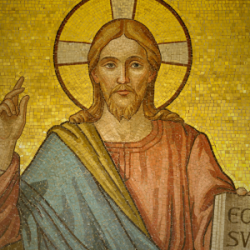Welcome readers! Please subscribe through the buttons on the right if you enjoy this post.

People matter. I’ve seen Jesus’ teachings on divorce used to keep people in abusive relationships.
In both Matthew’s and Luke’s gospels we read:
“But I tell you that anyone who divorces his wife, except for sexual immorality, makes her the victim of adultery, and anyone who marries a divorced woman commits adultery.” (Matthew 5:32)
“Anyone who divorces his wife and marries another woman commits adultery, and the man who marries a divorced woman commits adultery.” (Luke 16:18)
Christians taking Jesus’ saying on divorce at face value have forced women to stay in untold situations of abuse. I want to argue this week that in the context of the 1st Century’s economic realities for women in Roman and Jewish patriarchal society, and in the context of the debate between the Pharisaical schools of Shammai and Hillel on divorce, Jesus’s saying about divorce did not judge women but was instead concerned with social justice for them.
Let’s unpack that a bit.
First, within at least Jewish society at the time of Jesus, divorce was the prerogative of the man. The laws were patriarchal:
Deuteronomy 22:13-18: “If a man takes a wife and, after sleeping with her, dislikes her and slanders her and gives her a bad name, saying, ‘I married this woman, but when I approached her, I did not find proof of her virginity,’ then the young woman’s father and mother shall bring to the town elders at the gate proof that she was a virgin. Her father will say to the elders, ‘I gave my daughter in marriage to this man, but he dislikes her. Now he has slandered her and said, “I did not find your daughter to be a virgin.” But here is the proof of my daughter’s virginity.’ Then her parents shall display the cloth before the elders of the town, and the elders shall take the man and punish him. They shall fine him a hundred shekels of silver and give them to the young woman’s father, because this man has given an Israelite virgin a bad name. She shall continue to be his wife; he must not divorce her as long as he lives.”
This passage is disturbing for multiple reasons, but this week I’d like to focus on the fact that reparation for the unjust slander in the text would be paid “to the young woman’s father.” There is no reparation to the woman in that case and she would also have to remain married to her offender.
Another disturbing example is found a few verses further on in Deuteronomy 22:
Deuteronomy 22:23-24: “If a man happens to meet in a town a virgin pledged to be married and he sleeps with her, you shall take both of them to the gate of that town and stone them to death—the young woman because she was in a town and did not scream for help, and the man because he violated another man’s wife. You must purge the evil from among you.”
Blaming the victim because “she didn’t scream for help” is sick. This law blames rape victims for their own rape. But also notice that the man is punished because he violated “another man’s wife.” The crime is against the other man, not against the woman who is simply “another man’s wife.”
The last deeply disturbing example to consider is just a few more verses even further:
Deuteronomy 22:28-29: “If a man happens to meet a virgin who is not pledged to be married and rapes her and they are discovered, he shall pay her father fifty shekels of silver. He must marry the young woman, for he has violated her. He can never divorce her as long as he lives.”
This is sick on multiple levels, too! The victim of rape must marry her rapist, and without the option of divorce? Again the financial penalty is one that must be paid to the woman’s “father.”
Jesus’s saying must be interpreted in light of a culture where a women had few rights. She could not send her husband away with a certificate of divorce; only men were allowed to do that.
Also, the Torah’s criteria for divorce was problematic.
Deuteronomy 24:1-4: “If a man marries a woman who becomes displeasing to him because he finds something indecent about her, and he writes her a certificate of divorce, gives it to her and sends her from his house, and if after she leaves his house she becomes the wife of another man, and her second husband dislikes her and writes her a certificate of divorce, gives it to her and sends her from his house, or if he dies, then her first husband, who divorced her, is not allowed to marry her again after she has been defiled.”
Notice that within the Torah, the only prerequisite for divorce was if the woman “displeased” her husband in any way. Deuteronomy was at the heart of the debate between the Pharisaical schools of Shammai and Hillel. Hillel focused on the “displeasing” portion of this text and stated that a man could send his wife away, giving her a certificate of divorce, for any reason if he was “displeased” with her. Shammai, on the other hand, focused on the word “indecent” and said the permissible reason for a man to send his wife away was if she had committed an indecent act of infidelity, such as adultery. Notice that language. “Only if she” did. His adultery was not addressed because until Hellenistic influence, only men could issue a certificate of divorce. So you have two arguing factions. One said a man could divorce a woman for any reason he chose. And the other sought to limit the justification for divorce only to adultery.
Jesus and Hillel had so much in common in their teachings. Yes, Jesus and Hillel differed on the prozbul. Jesus called for the year of Jubilee where all debts would be forgiven and accumulated wealth redistributed to the poor. But in most every other area, Jesus interpreted the Torah in much the same way as Hillel. In the case of divorce, however, Jesus rejected the school of Hillel and sided either in the gospel of Matthew with Shammai, or in the gospel of Mark, a more stringent rejection of divorce than even Shammai (and Moses as well for that matter) would have been comfortable with.
Let’s look at each.
In Matthew, Jesus states that divorce in the Torah was a concession or an accommodation to male “hard-heartedness” within patriarchal marriages. Reasons could include something as minor as “finding something objectionable or unpleasing” about one’s wife (see Deuteronomy 24:1). In Matthew, Jesus goes beyond Torah and limits the reasons for a husband to divorce his wife to only infidelity.
Matthew 19:8-9: “He said to them, ‘It was because you were so hard-hearted that Moses allowed you to divorce your wives, but from the beginning it was not so. And I say to you, whoever divorces his wife, except for unchastity, and marries another commits adultery.’”
In Mark, we find a Jesus that is even more strident than in Matthew. There is no justification of divorce here, and even the reason of “infidelity” in Matthew is left out. “Whoever divorces his wife,” period.
Mark 10:5-10: “But Jesus said to them, ‘Because of your hardness of heart he wrote this commandment for you. But from the beginning of creation, “God made them male and female. For this reason a man shall leave his father and mother and be joined to his wife, and the two shall become one flesh.” So they are no longer two, but one flesh. Therefore what God has joined together, let no one separate.” In the house, the disciples ask Jesus again about this matter. He said to them, “Whoever divorces his wife and marries another commits adultery against her; and if she divorces her husband and marries another, she commits adultery.*”[*Mark is believed to have been written for a gentile audience, and within Roman culture women could divorce men as is seen here. In first-century Judaism it remained that only men could serve a certificate of divorce to a woman.]
I would argue that in each of these examples we see a gospel authors who are living within the boundaries of their own Roman and Jewish patriarchal social order and marriage. Jesus’ concern, within those constraints, is justice for women in a culture that disadvantages women, making women dependent on fathers and husbands for survival, with very few exceptions. In more egalitarian marriages, the principle would be the same: distributive justice for all parties involved.
I come from a long history of divorce on both my mother’s and my father’s sides of the family. I am the son of both my mother’s and father’s second marriages. My mother would go on to be married a total of four times and my father, three. I grew up with my mother living despite a physically and emotionally abusive situation, afraid to leave because there had been no case of marital infidelity on her or husband’s part. I see this as a gross misunderstanding of the cultural context of Jesus’ words. In Jesus’ culture, where Jesus speaks of divorce, we see a double standard where men didn’t commit adultery against their wives, but only against the husbands of the married women they may have had sex with. If woman was unmarried, the man paid a penalty to the father of the woman (cf. Deuteronomy 22:29), but it was not labeled as adultery, even if the man himself was married. This was a culture whose adultery laws were written when men were permitted to have multiple wives, as long as the rights of fathers in those wives’s lives were “respected.”
Jesus words in the gospels regarding divorce should not be shallowly interpreted and lifted out of their context to promote injustice and abuse toward women today. This would be to contradict the spirit of justice for women originally within those words.
Nor should they be used today to support patriarchal marriage as an ideal for human society. Speaking of Jesus’ words in the Temple debates (see Mark 12:24-27) where he unequivocally denounces patriarchal marriage as having a place in God’s just future, Elizabeth Schüssel Fiorenza writes in In Memory of Her: A Feminist Theological Reconstruction of Christian Origins:
“[Jesus is not claiming] that sexual differentiation and sexuality do not exist in the ‘world’ of God, but that ‘patriarchal marriage is no more,’ because its function in maintaining and continuing patriarchal economic and religious structures is no longer necessary . . . [Mark 12:26-27] replies directly to the question of the continuation of the patriarchal family: in the burning bush God is revealed to Moses as the God of promise given to the patriarchs and their posterity. The ‘house’ of Israel is not guaranteed in and through patriarchal marriage structures, but through the promise and faithfulness of Israel’s powerful, life-giving God. While the God of the patriarchal systems and its securities is the ‘God of the dead,’ the God of Israel is the ‘God of the living.’ In God’s world women and men no longer relate to each other in terms of patriarchal dominance and dependence, but as persons who live in the presence of the living God . . . The Sadducees have ‘erred much’ in assuming that the structures of patriarchy are unquestionably a dimension of God’s world as well. So, too, all subsequent Christians have erred in maintaining oppressive patriarchal structures.” (pp. 144-145)
Today, I hear Jesus’ words calling us to prioritize the vulnerable within our societies. Whether that vulnerability is rooted in discrimination based on race, ethnicity, gender, gender expression, gender identity, class, education, sexuality, ability, age, culture, language, and/or religion, we are called to put people and their well-being first, even if that means we going against traditional and popular interpretations of our sacred texts. The passages above speak of women being more than disposable objects, easily discarded in consumer-style patriarchal marriages. People couldn’t simply discard or trade wives based on legal loopholes in the Torah without acknowledging the damage done to the women involved. In Spirit, they call us to reject seeing anyone as a disposable means to our own pleasure and gratification. People matter.













